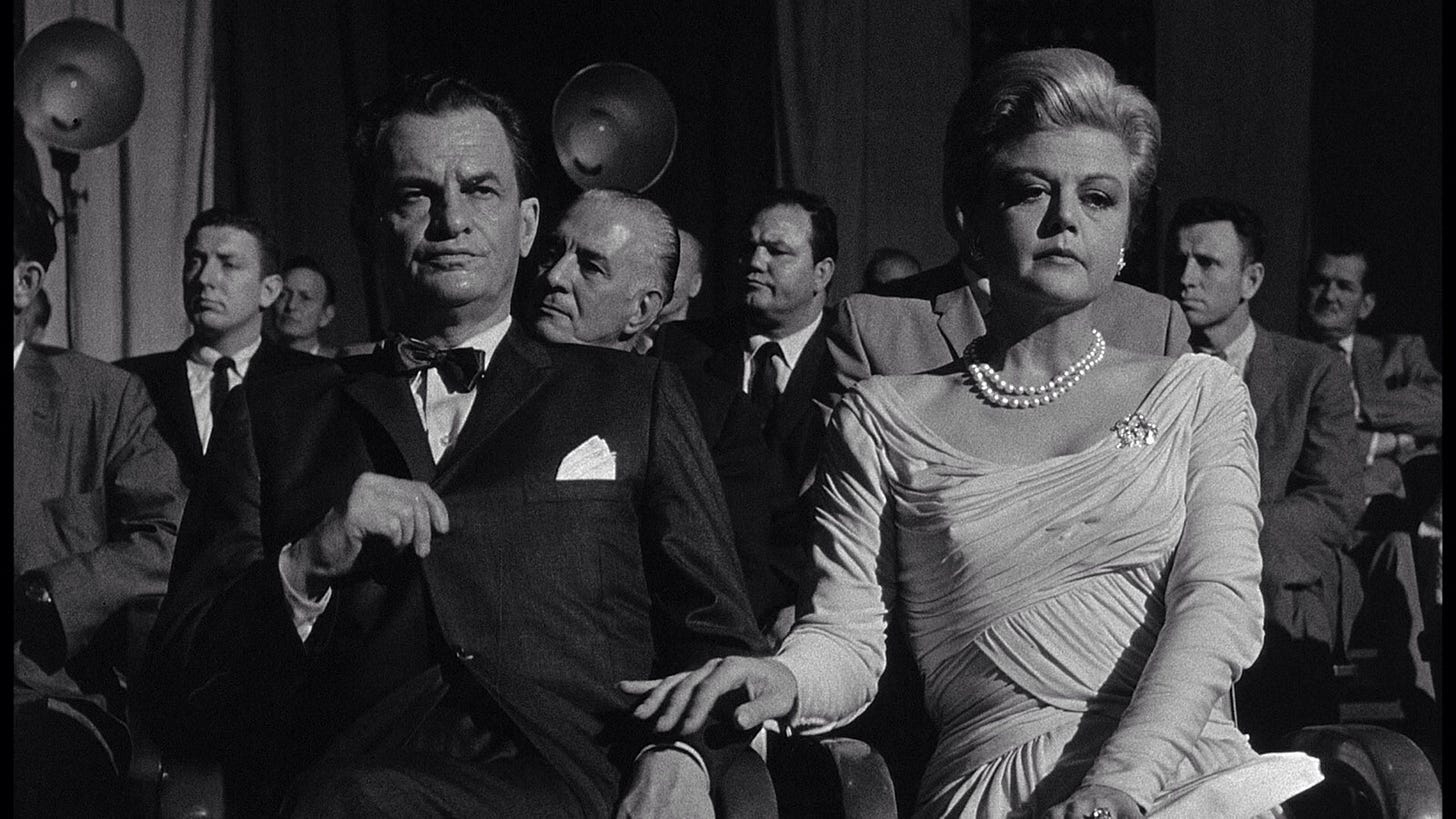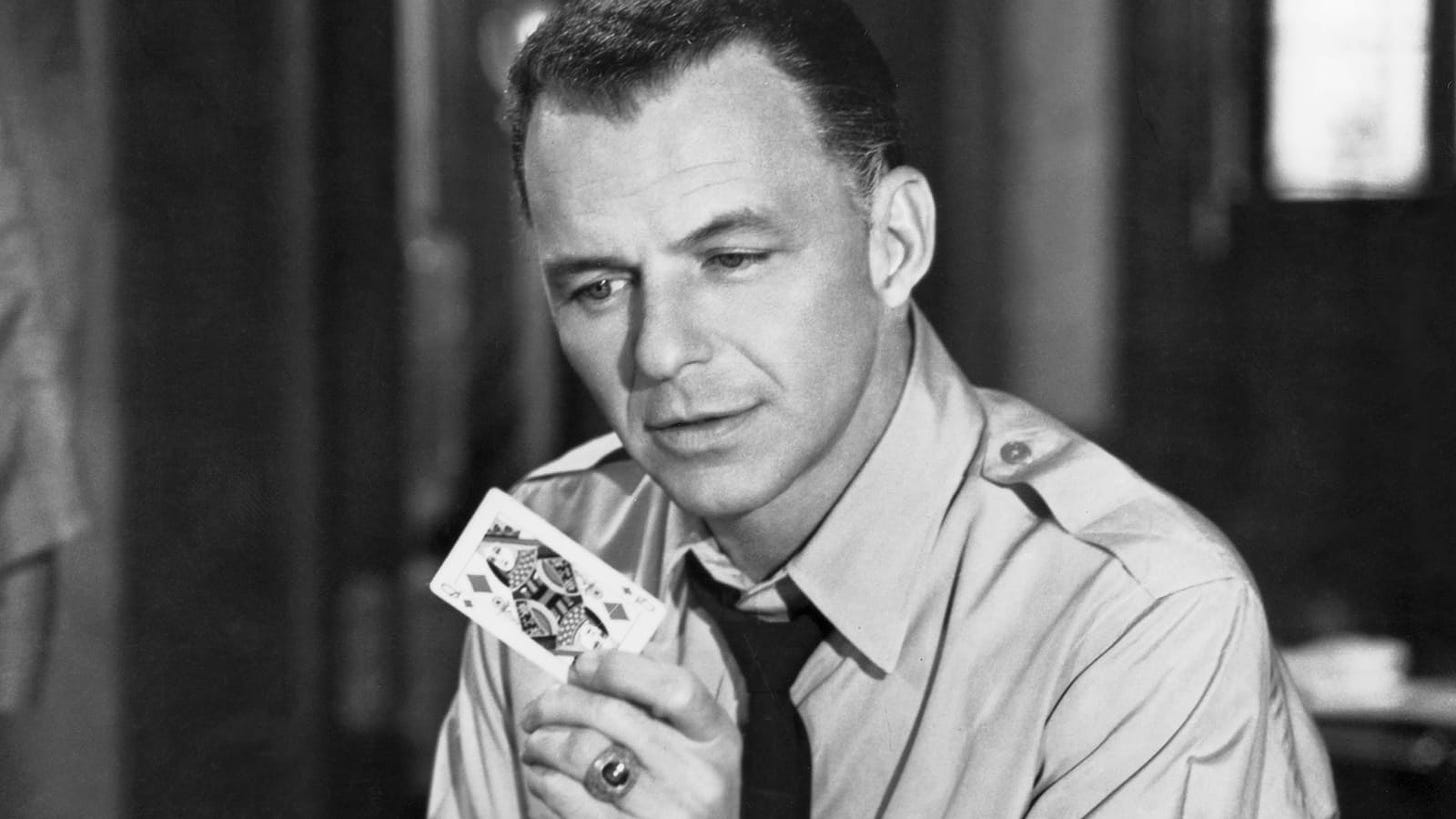The Manchurian Candidate: Killer Queen
Like most everything else, the meaning of the term has been distorted by our modern politics. Even so, the original film has lost none of its power.
John Frankenheimer’s The Manchurian Candidate has become so deeply embedded in the American national psyche that it remains one of the rare films that has transcended its original cultural context and become part of our national lexicon. You could argue that the film, along with perhaps Dr. Strangelove, is the ultimate Cold War work, the one that best captures the mix of existential dread and paranoia felt by Americans in the early 1960s. Watching it, I was reminded that as much as I like to traverse down some blind alleys on this site, sometimes you just gotta play the hits.
Need proof of the movie’s enduring resonance? You might recall that Donald Trump was regularly derided by his liberal critics as a “Manchurian Candidate” during his early days as a presidential candidate and chief executive for his purported close and undisclosed ties with Russia. But he wasn’t the only presidential aspirant who has been affixed with the label. Conservatives used it to give voice to their suspicions about Barack Obama, whom they accused of having a mysterious, radical past. And naturally John McCain, who was held prisoner by North Vietnam for years, seemed an ideal fit for the role. McCain, ironically, both got and gave on that front.
Bill Clinton? Check. George W. Bush? Yep. Even Ronald Reagan? You bet.
To go extra-meta: When Hillary Clinton was asked, after losing to Trump, what her favorite film was, she replied with, you guessed it, The Manchurian Candidate. Subtle that answer was not. Clinton should have loathed the film because in the 2004 remake, Meryl Streep so seemingly based the manipulative villain at the center of the conspiracy on her that Streep was forced to publicly deny it.
The remake, directed by Jonathan Demme, is instructive. While the original-recipe Manchurian Candidate featured a Communist plot to assassinate an American presidential candidate, Demme’s version had to strip away the Cold War stuff in favor of Evil Corporation does something something. It showed how the term “Manchurian Candidate” had drifted away from its original meaning – a POW brainwashed by a competing ideology into committing a terrorist act over which he has no control –- to any political operator who harbors a secret –- and sinister – agenda on the behalf of shadowy figures.
That reading dilutes what made the original so fascinating. Even today, it’s difficult to decide whether Frankenheimer’s film stokes Cold War-era paranoia or satirizes it. It is a fever-dream of a movie from start to finish, an astounding work for its time. In its early scenes, a group of American soldiers are kidnapped during the Korean War and brainwashed by their Communist captors (including the Soviets) to be unknowing instruments of terror. During the conditioning, the soldiers seem to believe they’re attending a ladies’ garden party in New Jersey. Their captors are portrayed, almost absurdly, like some sort of James Bond-style Axis of Evil sitting together in a gallery observing the proceedings.
None in the platoon, including hero-soldier Raymond Shaw (a chilly, unlikeable Laurence Harvey) and Captain Bennett Marco (Frank Sinatra), remember any of it when they return to the United States days later. Years afterward, Marco begins having recurring nightmares about his time in Korea.1 Meanwhile, Shaw’s rapacious mother (a legendary Angela Lansbury) is leveraging her son’s war record and her new marriage to anti-Communist Senator Johnny Iselin to advance her own political agenda. Marco’s investigation leads him to a Communist conspiracy involving Shaw that seeks to infiltrate the U.S. at its highest levels, one that will endow the new president “with powers that will make martial law seem like anarchy.”
Senator Iselin, as played by James Gregory, will come across as a familiar figure to modern audiences. Undoubtedly based on Joseph McCarthy, Iselin is a politician of such insincerity that he can’t even decide for himself how many Communist agents have purportedly penetrated the federal government. In a classic moment, he decides upon “57” after the film shows him with a Heinz bottle in hand.
In that sense, the movie feels very much a piece of its moment as America was increasingly asking itself tougher questions. Just a few years earlier, Elia Kazan’s A Face in the Crowd cynically portrayed a folksy comedian played by Andy Griffith who is transformed into a popular demagogue through a craven mass media. But beyond that, Frankenheimer’s film also touches upon all of the trappings of our current politics, from Iselin and his wife flying about on private jets to his gratuitous citations of Lincoln and his embrace of American iconography to his manipulation of the press. Even then, disinformation ran rampant and often went unquestioned. Earlier this month, I covered a Trump rally northwest Georgia in the congressional district of Rep. Marjorie Taylor Greene. Some of the attendees wore t-shirts urging people to “stop Communism” by supporting Greene. In 2024. Things haven’t changed all that much.
In short, Frankenheimer has everything dialed up to 11, but this isn’t Dr. Strangelove. The movie is grounded in a recognizable, plausible reality. Audiences in 1962 may have left the theater thinking that the storyline was over the top, that it Could Not Happen Here. But then, this wasn’t that far from the days of McCarthy trying to root out foreign agents, when Americans still built bomb shelters. The movie was released at the height of the Cuban Missile Crisis, after all.
And a year later, President Kennedy was shot by an assassin in Dallas, leading to still endless speculation whether Cuban and/or Soviet agents were involved and ushering a new era of political instability in which we are still living. Despite its sometimes satirical leanings, that makes The Manchurian Candidate one of the prophetic films ever made. It retains the full measure of its power today.
WHERE CAN I WATCH IT: The Manchurian Candidate is rentable on all major platforms.
HEY ISN’T THAT: Here’s a deep cut for you: Leslie Parrish, who plays Shaw’s long-lost love and the daughter of a liberal senator, was a 1960s starlet who eventually landed in episodic TV, including an episode of “Star Trek” (the one with the green hand that surrounds the Enterprise). Parrish became a vocal critic of the Vietnam War and organized protest marches in the Los Angeles later. She attended the 1968 Democratic Convention as a delegate for antiwar candidate Eugene McCarthy. She later married Richard Bach, the author of Jonathan Livingston Seagull.
DUST CLOUDS: The CIA engaged in its own mind-control and mental manipulation experiments in the 1950s and 60s. Dubbed at first as “Project Artichoke” and then “Project MKUltra,” the goals included determining whether subjects could be compelled to carry out assassinations and whether they could be forced to confess through the use of drugs and psychological torture. The records of MKUltra were destroyed by CIA Director Richard Helms in 1973, but its existence was revealed during a subsequent congressional probe into the CIA’s activities.
ARMAGEDDON INDEX: 7/10. The Soviets decided to play the inside game rather than the outside one, but things still got very dicey.
WHAT ELSE I’M WATCHING: TV: Shogun (S1, FX/Hulu), Tokyo Vice (S2, MAX), Curb Your Enthusiasm (S12, MAX) Movies: Everest (Kormakur, 2015), Marlowe (Jordan, 2022).
COMMENTS OR SUGGESTIONS: Nucleartheater@gmail.com
LAST ENTRY: Barcelona (1994)
NEXT ENTRY: Testament (1983)
Let’s talk about Frank Sinatra for a moment, who probably (especially these days) has never been given his proper due as an actor. His career was famously saved by a supporting role From Here to Eternity (see also The Godfather, horse head in bed, etc). He built a pretty good resume after that. Sinatra wasn’t just some crooner they stuck in movies; he worked on his craft. He’s terrific in The Manchurian Candidate as a solider who appears to be suffering from advanced PTSD. There’s little heroism in his performance. His famous hand-to-hand fight scene in a tight New York apartment was sampled in the Bond film From Russia with Love and a hundred action films since.
Sinatra served as a producer on The Manchurian Candidate and as a one-time friend of Kennedy’s, he ended up being the subject of a long-lasting urban legend that claimed he pulled the film from distribution after the president was killed. Turns out, that wasn’t true. Strangely, Sinatra had played an assassin hired to kill the president in the1954 film Suddenly. That movie was also the subject of rumors that it was removed from circulation.





